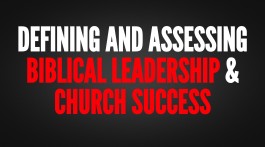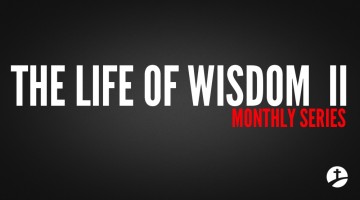As always I love to pass along the goodies that I receive in my studies. “Margin,” by Richard Swenson has probably been one of my favorites because it deals directly with my life in regards to time management. I truly believe many people could benefit from this book’s wisdom and I hope you enjoy the review!
SUMMARY
“Margin,” by Richard Swenson is a useful book to help everyone in the modern world find the extra time and space they need for a healthy life. His main idea is based on the premise that today’s modern man, particularly in the U.S., is far more stressed and overwhelmed than at any prior time. With that premise in mind he gives a simple principle to overcome stress and burnout in the following equation, “Power – Load = Margin,” (p.70).
- POWER: Energy, skills, time, training, emotional and physical strength, faith, finances, and social supports.
- LOAD: Factors as work, problems, obligations and commitments, expectations (internal and external), debt, deadlines, and interpersonal conflicts.
- MARGIN: The space between our load and our limits. It is the amount allowed beyond that which is needed. It is something held in reserve for contingencies or unanticipated situations. Margin is the gap between rest and exhaustion, the space between breathing freely and suffocating,” (p. 69).
The four main places that Swenson states we need margin is in our:
- Time
- Health
- Emotional Energy
- Finances
In the book he gives helpful steps and advice to help the reader have margin in each of the four main areas of life that cause stress and burnout. The book is effective at showing how important margin is and the negative effects one will suffer without it. With short stories and important stats the book reminds everyone to follow the old saying, “Work hard, play hard.”
In other words, Swenson encourages people to be just as dedicated to finding ways to rest and be refreshed as they are to work and productivity because life requires that we do both well. Swenson states, “God has instructed us that life is more than work. It includes relationships, worship, and yes, even rest. “A rest-less work style produces a restless person,” notes Gordon MacDonald. “We do not rest because our work is done; we rest because God commanded it and created us to have a need for it,”
(p. 197).
TAKE AWAY
Swanson does a great job of diagnosing the problems in the modern era and offering practical advice. I agree with his premise regarding progress and the push forward with technology in the modern age being a principle cause for burnout. He writes, “There can be little doubt that the contemporary absence of margin is linked to the march of progress. In a general sense, those cultures with the most progress are the same as those with the least margin,” (p. 25).
Many people today that grew up pursuing the American dream have reached a breaking point due to the non-stop nature of our culture. From the time we get up most people never stop dealing with stress due to 24hr news programs bringing us tragedies from around the globe, smart phones bombarding us with texts and updates in social media from everyone we know, congested traffic getting worse, and higher prices for everything we need to live- such as food, housing, and clothes. I even have noticed a trend in the U.S. culture for people to start living on farms again and this can be seen by all the new reality shows on the Discovery and National Geographic channels.
As a result, Swanson does well to note that, “Progress’s biggest failure has been its inability to nurture and protect right relationships,” (p. 30). This relationship deficit can even be felt in the modern pastor’s life. I remember a pastor once telling me that working in the ministry was more draining and stressful than serving in the Army and fighting in a war overseas due to all the emotional stress he had to deal with via social media and non-stop pressure from needy members blowing up his cell phone.
The following research to me is proof of how right Swenson’s premise truly is, he writes, “In one study, a patient was first given a cardiac treadmill exam. Despite vigorous physical exercise, the patient’s cardiovascular status remained normal throughout. He then was asked to subtract seven from 777 serially for three-and-one-half minutes. His blood pressure went up forty points. Similar results have been achieved in other studies. Certain biochemical stress parameters are more affected by psychological stressors than by physical stressors. Chronic uncertainty, sustained levels of increased vigilance, or struggling with a mental task are more stressful than chopping wood,” (p. 46).
Now consider what Swanson writes regarding our modern world in regards to progress bringing stress, “It has been estimated that the average person must learn to operate twenty thousand pieces of equipment,” (p. 63) and “In 1980, there were 12,000 items in the average supermarket; today there are 30,000— including the 186 different choices of breakfast cereal in our local grocery store. Purchase a satellite dish and choose from 1,100 movies every month,” (p. 61). Therefore, if stress is more active in mental tasks than physical labor and today’s culture has more mental tasks than ever before, the outcome is simple; people are going to be more stressed in life unless they learn to manage their life with margins.
MAKING MARGINS IN YOUR TIME
- Expect the unexpected
- Learn to say no
- Turn off the T.V.
- Prune the activity branches
- Practice simplicity and contentment
- Separate time from technology
- Have long term vision
- Thank God
- Cherish memories
- Create buffer zones
- Plan free time
- Make important things important
MAKING MARGINS IN YOUR HEALTH
- Take personal responsibility
- Change your habits
- Value sleep
- Take a nap
- Exercise
- Avoid over eating
- Drink water
- Eat more at home
- Be realistic
- Stick with it
MAKING MARGINS IN YOUR EMOTIONAL ENERGY
- Have accountability & support
- Reconcile relationships
- Serve one another
- Rest
- Laugh
- Cry
- Create relationship boundaries
- Think positive about the future
- Offer thanks
- Be rich in faith
- Have hope
- Love
MAKING MARGINS IN YOUR FINANCES
- Plan ahead
- Be a giver
- Fight against greed
- Understand really need
- Decrease unneeded spending
- Increase income
- Save more
- Budget
- Buy used
- Resist impulses
- Avoid credit
- Put first God’s Kingdom
Ephesians 5:16, “Making the most of every opportunity, because the days are evil!”



